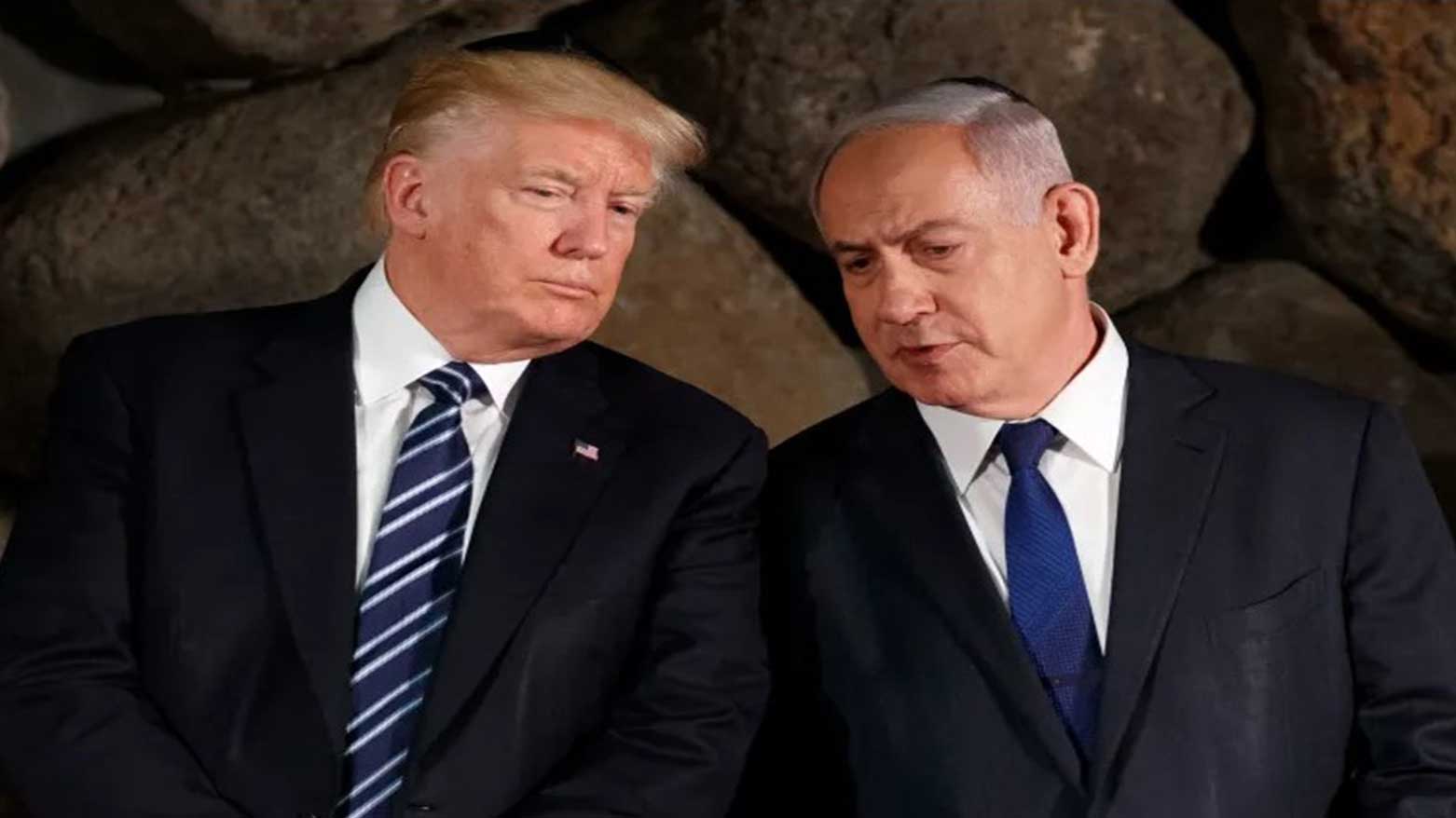Trump-Netanyahu Meeting Could Shape Future of Gaza War and Middle East Stability
Netanyahu, who spoke before departing for the U.S. capital, said, “We are working to achieve this deal that we have discussed, under the conditions that we have agreed to.”

ERBIL (Kurdistan24) — Israeli Prime Minister Benjamin Netanyahu said Sunday that he hoped an upcoming meeting with U.S. President Donald Trump would help advance a long-stalled Gaza ceasefire agreement, as indirect negotiations with Hamas resumed in Doha, according to AFP.
The meeting, scheduled for Monday in Washington, comes as tensions spiral across the Middle East and international pressure intensifies for an end to the devastating war in Gaza, now entering its 22nd month. Netanyahu, who spoke before departing for the U.S. capital, said, “We are working to achieve this deal that we have discussed, under the conditions that we have agreed to.”
He added that a negotiating team had been sent to Qatar "with clear instructions," and expressed hope that his discussions with Trump "can definitely help advance this (deal), which we are all hoping for.”
Trump, who has recently re-entered the diplomatic spotlight with renewed efforts to broker a resolution, told reporters Sunday, “I think there's a good chance we have a deal with Hamas during the week, during the coming week.”
According to a Palestinian official cited by AFP, the indirect talks in Doha have begun, focusing on the implementation mechanisms of a potential truce and a hostage exchange. The proposal under discussion reportedly includes a 60-day ceasefire, during which Hamas would release 10 hostages and the remains of several others in exchange for Palestinian detainees held by Israel.
Two Palestinian sources close to the negotiations told AFP that Hamas is also demanding guarantees that fighting will not resume during talks, the phased withdrawal of Israeli forces, and the reactivation of the UN-led aid distribution system. Additionally, Hamas’s top negotiator, Khalil al-Hayya, is pressing for the reopening of Gaza’s Rafah crossing to evacuate the wounded.
Despite the optimism surrounding the Trump-Netanyahu meeting, serious challenges remain. Netanyahu has already deemed Hamas’s latest response to the U.S.-backed proposal as containing “unacceptable” demands. Nonetheless, the involvement of Trump — who has long maintained close ties with Netanyahu — adds a layer of political gravity to the effort.
Since Hamas’s surprise October 2023 attack triggered Israel’s massive military response, two temporary ceasefires have been brokered, allowing for limited hostage-prisoner exchanges. Of the 251 hostages originally taken by Palestinian militants, 49 are still believed to be held in Gaza — including 27 presumed dead, according to Israeli authorities.
While the Trump-Netanyahu summit raises expectations for a diplomatic breakthrough, previous efforts have faltered over Israel’s refusal to accept a permanent ceasefire and Hamas’s insistence on clear guarantees before halting hostilities.
Hamas, designated as a terrorist organization by the United States, the European Union, and several other countries, has long been accused of using civilians as human shields and embedding its armed infrastructure within densely populated areas of Gaza.
Israel maintains that its military operations are aimed solely at dismantling Hamas’s militant capabilities, freeing the remaining hostages, and ensuring long-term security for its citizens. Israeli officials argue that any lasting peace will require the disarmament of Hamas and the end of its control over Gaza, which they view as a prerequisite for restoring stability to both Israel and the broader region.
